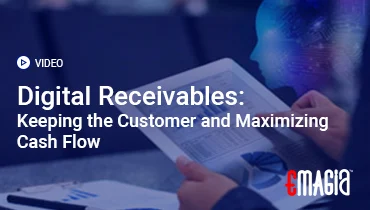In the fast-paced world of business, cash flow is king. Yet, for many companies, it’s an ongoing battle to collect what they are owed. Unpaid invoices can tie up working capital, stifle growth, and even threaten a company’s very existence. This is where professional receivable management services become not just a luxury, but a critical necessity. By focusing on a proactive and systematic approach to collecting payments, businesses can ensure financial stability and cultivate healthier customer relationships. This guide dives deep into the world of receivables management, exploring its core principles, best practices, and the powerful solutions available today to transform your financial operations.
A proactive approach to managing your accounts receivable is far more than just chasing down late payments. It’s a comprehensive strategy that spans the entire customer lifecycle, from initial credit checks to final payment. A well-executed strategy can significantly improve your bottom line and free up resources that were previously spent on collection efforts. Whether you’re a small business or a large enterprise, understanding and implementing effective receivable management is a fundamental step toward long-term success. This article will break down every facet of this crucial business function, providing you with the insights you need to take control of your cash flow.
What Are Receivable Management Services?
At its core, receivable management is the process of collecting payments from customers who have purchased goods or services on credit. This encompasses everything from setting credit terms to managing invoices and following up on overdue accounts. When businesses don’t have the internal resources or expertise to handle this themselves, they turn to specialized firms that provide receivable management services. These companies act as an extension of your finance department, using proven methods and advanced technology to ensure timely payments without alienating your customers.
There’s a common misconception that these services are the same as debt collection. While there is overlap, a key distinction exists. Receivable collection services focus on the entire accounts receivable lifecycle, often from the moment an invoice is generated. Their goal is to prevent accounts from becoming severely delinquent in the first place, using friendly reminders and gentle follow-ups. In contrast, debt collection agencies typically step in only after an account is long overdue and the chances of recovery are significantly lower. Many firms, such as those that are referred to as accounts receivable management services, offer a full spectrum of solutions that span from early-stage to late-stage recovery.
Why Businesses Need Accounts Receivable Management Services?
The reasons to invest in professional assistance are compelling and numerous. The most immediate benefit is a significant improvement in cash flow. When invoices are paid on time, a business has the capital it needs to pay its own bills, invest in growth, and manage day-to-day operations without stress. This is particularly important for small to medium-sized businesses where a single late payment can have a ripple effect on the entire company.
Beyond cash flow, these services play a vital role in reducing bad debt write-offs. By consistently following up on payments and identifying potential issues early, they can prevent accounts from becoming uncollectible. This proactive approach saves businesses from having to record losses on their books and protects their profitability. Additionally, outsourcing this function can save an immense amount of time and resources. Instead of dedicating valuable staff to tedious follow-up calls and administrative tasks, you can reallocate them to core business activities. This efficiency can lead to greater productivity and a more focused workforce, ultimately driving better business outcomes.
Professional services also help in maintaining positive customer relationships. An experienced provider understands the importance of a professional and respectful tone during communication. They are trained to handle difficult conversations and negotiate payment plans without damaging the trust you have built with your clients. This is a delicate balance that many internal teams struggle to achieve, making an outsourced partner a valuable asset.
Key Components of Effective Receivables Management
A robust receivables management strategy is built on several interconnected pillars. The process begins long before an invoice is sent. It starts with sound credit policies and a thorough risk assessment of new clients. By understanding a customer’s creditworthiness from the outset, you can set appropriate credit limits and terms, reducing the likelihood of future non-payment. This is a proactive measure that lays the foundation for all subsequent collection efforts.
Next comes the invoicing and billing process. An invoice should be clear, accurate, and sent in a timely manner. The easier it is for a customer to understand and pay an invoice, the faster they will do so. Modern solutions often include automated invoicing, which eliminates human error and ensures that bills are sent out as soon as a service is complete or a product is shipped. This foundational step is critical for efficient cash flow management and forms the basis for all follow-up actions.
Timely payment reminders and follow-ups are the heart of the collection process. This can range from automated email alerts to personalized phone calls. The goal is to be persistent without being pushy. A good strategy escalates the level of communication gradually, starting with a friendly reminder and moving to more direct contact as the invoice ages. For particularly complex situations, dispute resolution is a key component. A dedicated service can help mediate issues, such as billing discrepancies or service complaints, to resolve the matter and secure payment. Finally, robust reporting and analytics are essential for continuous improvement. By tracking metrics like Days Sales Outstanding (DSO) and collection effectiveness, businesses can identify bottlenecks and refine their processes over time.
The Role of Technology in Receivables Management Solutions
Technology has revolutionized the way businesses manage their accounts. Automated platforms can handle a vast array of tasks, from sending out invoices to generating follow-up emails and tracking payment status in real-time. This automation dramatically reduces the manual workload on finance teams, allowing them to focus on more strategic tasks like analyzing trends and engaging with high-value clients. Such systems are often integrated with existing accounting and enterprise resource planning (ERP) software, creating a seamless flow of data across the organization. This integration ensures that all information is up-to-date and accurate, preventing errors and improving overall efficiency.
Furthermore, technology provides powerful tools for predictive analytics. These systems use machine learning and AI to analyze historical payment data and predict which customers are most likely to pay late. This allows businesses to prioritize their collection efforts, focusing on high-risk accounts while saving resources on low-risk ones. Customer portals have also become a key part of modern strategies. These portals provide a secure and convenient way for clients to view their invoices, make payments, and manage their account information. Offering a streamlined payment experience can significantly reduce friction and encourage faster payment. Overall, the right technological solution is a game-changer for any business looking to optimize its receivables management and improve cash flow.
Choosing the Right Receivable Management Services LLC or Inc.
Selecting a partner to handle your collections is a significant decision. You must choose a firm that not only understands your industry but also aligns with your business values. Many companies operate as a receivable management services LLC or receivable management services inc, and while their corporate structure may vary, what matters most is their reputation and service quality. It is vital to conduct due diligence, starting with a thorough review of their track record. Look for testimonials and case studies that highlight their success in similar situations to yours. Online reviews, such as those for source receivables management reviews or altus receivables management reviews, can provide valuable insights into other clients’ experiences. While these should not be the only factor, they can help you gauge a company’s reliability and customer service.
Beyond reputation, consider the range of services they offer. Some firms specialize in early-stage collections, while others are experts in late-stage debt recovery. You might need a partner who can handle both, providing a complete solution from start to finish. For example, a company might offer everything from automated reminders to more aggressive debt collection activities. It is also important to understand their pricing structure. Are they a flat-fee service, or do they charge a percentage of the amount collected? This can significantly impact your bottom line, so it is crucial to clarify all costs upfront. Finally, ask about their data security measures. Since they will be handling sensitive financial information, you need to be sure they are compliant with industry standards like PCI DSS. A trustworthy provider will be transparent about their security protocols and happy to answer any questions you may have.
The Collections Process: From Receivable to Recovery
The journey from a fresh invoice to a collected payment can be a complex one. The process can be broadly divided into two phases: soft collections and hard collections. Soft collections focus on maintaining a positive relationship with the client. This phase typically involves friendly email reminders, automated text messages, and courteous phone calls to remind the client of their outstanding balance. The tone is professional and collaborative, aiming to resolve any issues and facilitate a quick payment. During this stage, a company like aars recovery solutions might focus on early intervention to prevent the account from aging further. A key goal is to keep the account from needing a more aggressive approach.
When an account becomes severely overdue, it enters the hard collections phase. At this point, a receivable management services collection agency may take over the account. These agencies, such as rms new york or r&s recovery, are specifically trained in late-stage debt recovery. Their methods are more direct and formal, and they are typically regulated by laws such as the Fair Debt Collection Practices Act (FDCPA). It’s important to choose an agency that operates ethically and within the bounds of the law to protect your company’s reputation and avoid legal trouble. These firms specialize in persistent and effective follow-up to secure payment on even the most stubborn accounts. For some businesses, this might include working with a company like the receivable management services to handle particularly difficult cases.
The decision of when to escalate an account to a hard collections agency is a strategic one. Waiting too long can decrease the chances of recovery, while acting too quickly could alienate a valuable client. Many businesses use a tiered approach, where their in-house team handles the first 30-60 days of delinquency before transferring the account to an outsourced partner. This hybrid model allows for a blend of cost-effectiveness and professional expertise, ensuring that every opportunity for recovery is explored efficiently.
Outsource Receivables Management vs. In-House
Businesses have two primary options for handling their receivables: managing the process in-house or using a third-party service. Each approach has its own set of advantages and disadvantages. Managing receivables in-house gives you complete control over the process. You can dictate the tone of communication, the frequency of follow-ups, and the strategies used to collect payments. For companies with a small number of clients or a dedicated finance team, this can be a viable and cost-effective option. However, it requires significant time and resources. Staff must be trained in collection techniques, and the process can be emotionally taxing, which can lead to high turnover. A business with a small team might find it difficult to scale their collection efforts as they grow, potentially leading to a higher number of uncollected invoices.
Outsourcing your accounts receivable management to a firm like outsource receivables mgmt can offer significant benefits, particularly for growing businesses. These services bring a level of professionalism and expertise that is difficult to replicate in-house. They have trained staff, proven processes, and advanced technology that can improve your collection rates without a massive internal investment. Outsourcing also allows your internal team to focus on core business functions, like sales and marketing, which can drive further growth. However, this approach comes with a loss of direct control. You must trust your partner to represent your brand in a professional manner. Choosing the right partner is therefore critical to a successful relationship. Firms that offer receivables management solutions often have flexible models that can be customized to your specific needs, making them a popular choice for many modern companies looking to optimize their finances.
A Deeper Look into Specific Services and Companies
The market for receivables management is broad, with many firms offering specialized services. Companies like the receivable management services and receivable solutions debt collector are part of a diverse ecosystem. For example, some firms specialize in a particular industry, such as healthcare or financial services, where regulations and processes are unique. Others focus on specific types of debt, like commercial or consumer. Knowing the specifics of what a company offers is crucial when making a decision. When looking for a partner, consider their experience and whether they have worked with businesses like yours before. A company’s website or sales team should be able to provide detailed information about their core competencies and service offerings. This level of detail helps to ensure that you are working with a provider that can truly meet your needs.
Some firms specialize in technology. For instance, a company offering receivables management solutions might provide a software-as-a-service (SaaS) platform that you can use to automate your in-house collections. This approach offers the best of both worlds, providing the efficiency of automation while keeping the process in your control. The key is to find a solution that integrates seamlessly with your existing systems and provides the level of automation and insight you need to improve your cash flow. Companies like receivables control corp are well-known in the industry and can provide valuable insights into best practices. For some, using a partner like llcdbarmp services llc or a similar firm may be the best path forward, as it allows a company to focus on what it does best without worrying about the complexities of debt recovery. Ultimately, the best solution is the one that fits your unique business model and financial goals.
Advanced Strategies for A/R Management and Recovery
For businesses looking to go beyond the basics, there are several advanced strategies to consider. One of the most effective is using data analytics to inform your collection strategy. By analyzing customer payment history, purchase behavior, and other data points, you can develop a predictive model that identifies high-risk accounts before they become a problem. This allows you to tailor your communication and follow-up efforts, focusing your resources where they are most needed. Another strategy is to offer flexible payment options and plans. For some clients, a full payment may not be possible due to a temporary financial hardship. By offering a structured payment plan, you can still recover a significant portion of the debt while maintaining a positive relationship. Services like receivable recovery specialize in negotiating these types of agreements, providing a win-win situation for both parties. This is a far more effective approach than taking a hardline stance that could lead to a complete loss of the debt.
Another powerful strategy is to leverage technology to create a seamless customer experience. Modern platforms allow businesses to create branded payment portals where customers can easily view their outstanding invoices, make payments via multiple methods, and even set up auto-pay. This convenience can dramatically reduce the friction in the payment process and lead to faster collections. When it comes to more complex or difficult cases, a specialized service like aars recovery solutions or action recovery services might be required. These firms are experts in complex cases and are trained to navigate the intricacies of difficult financial situations. They can provide an additional layer of expertise that an in-house team may not have. The goal of these advanced strategies is to move from a reactive approach to a proactive, data-driven one, ensuring that every dollar owed to your business is collected as efficiently as possible.
The Emagia Approach to Modern Receivables
In today’s complex financial landscape, businesses need more than just manual processes and spreadsheets to manage their receivables effectively. Modern platforms, like Emagia’s, leverage advanced technology to transform accounts receivable from a reactive function into a strategic asset. The system uses automation to streamline routine tasks, such as invoice delivery, payment reminders, and cash application. This not only frees up your team’s time but also ensures that every step is executed with precision and consistency, reducing the risk of human error. It provides an all-in-one solution that integrates with your existing ERP and accounting systems, creating a single source of truth for all your financial data.
This unified view gives you a clear, real-time picture of your cash flow and outstanding receivables, empowering you to make faster and more informed decisions. By automating collections and using data-driven insights, businesses can reduce their Days Sales Outstanding (DSO), improve collection rates, and strengthen their financial position. The platform also includes a self-service portal for customers, making it easier than ever for them to view invoices and submit payments. This enhanced customer experience is crucial for building loyalty and encouraging on-time payments. With a modern approach like this, accounts receivable becomes a proactive, strategic function that supports and accelerates business growth.
FAQs
What is the difference between a collection agency and a receivables management service?
A collection agency typically handles accounts that are already seriously delinquent. In contrast, a receivable management services collection agency or a receivables management firm often works on the entire lifecycle of an account, from the time an invoice is issued to prevent it from becoming overdue. They use a more preventative approach, while collection agencies are focused on recovery.
How do I find a reliable receivables management service?
When searching for a trustworthy partner, consider checking online reviews and testimonials, such as those for source receivables management reviews. Look for firms with a strong reputation for ethical practices and a track record of success in your industry. It’s also wise to check if a firm like the receivable management services llc legit is verified and has proper licensing and certifications.
What is the cost of using a receivable management service?
The cost varies widely depending on the provider and the services you need. Some firms charge a flat fee per invoice or per month, while others operate on a contingency basis, taking a percentage of the amount collected. It is important to ask for a detailed breakdown of all fees and to consider the potential increase in recovered revenue when evaluating the cost.
What is accounts receivable recovery?
Accounts receivable recovery refers to the process of retrieving outstanding payments from customers. This can involve a variety of methods, from gentle reminders and follow-up calls to more formal collection efforts. The goal of any accounts receivable recovery solution is to maximize the amount of money recovered while maintaining a positive relationship with the customer.
What is rms recovery management services?
RMS Recovery Management Services is one of many firms in the debt collection industry. While the term “RMS” can be used by various companies (e.g., rec mgt grp), it generally refers to a company specializing in recovering outstanding accounts. It is important to verify the specific company you are dealing with to understand their services and reputation.
Can I use a receivable management service for a small business?
Yes, many small businesses benefit greatly from outsourcing their accounts receivable. It allows them to save time, improve cash flow, and focus on core business activities. Many providers offer tailored solutions for businesses of all sizes, so it is possible to find a service that fits your specific needs and budget.
What is the receivable management services llc legit?
The legitimacy of any company, including the receivable management services llc, can be verified through several methods. You can check for official business registrations, look for reviews from reputable sources, and ask for client references. It is always recommended to perform your own research to ensure you are dealing with a legitimate and trustworthy company.



